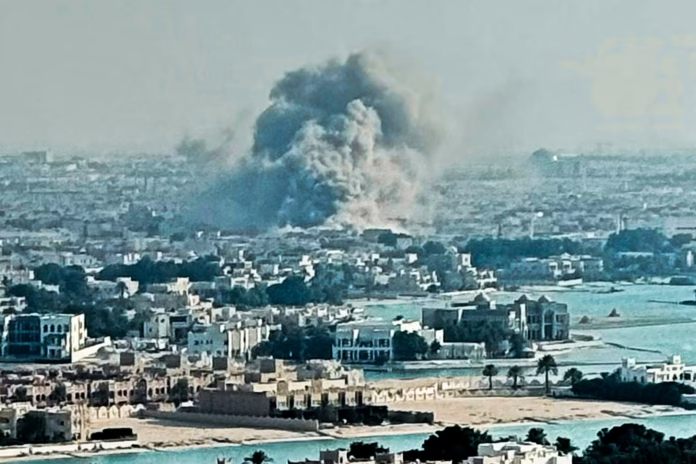A series of explosions in Doha, Qatar, has triggered waves of concern across the Middle East, with initial reports linking the incident to escalating regional tensions. While investigations are underway to determine the exact cause, the political aftershocks are already reverberating, with Israel issuing stern warnings that could reshape the region’s fragile balance of power.
The Incident in Doha
Eyewitnesses reported multiple blasts in parts of the Qatari capital late on Tuesday night, causing panic among residents and raising alarms across regional security networks. Authorities have yet to officially confirm the scale of damage or casualties, but the timing of the explosions comes amid heightened geopolitical strain in the Gulf.
Israel’s Response
Within hours, Israel issued a statement linking the explosions to “destabilizing forces” in the region, hinting at groups allegedly backed by rival states. Officials in Tel Aviv suggested that any threat emanating from Qatar or its allies would invite a strong retaliatory response, sparking fears of a widening confrontation.
This marks a rare and direct spotlight on Qatar from Israel, which has traditionally focused its rhetoric on Iran, Hezbollah, and Palestinian factions.
Regional Reactions
-
Qatar: Authorities have urged calm, stressing that an investigation is ongoing while dismissing speculation about foreign involvement.
-
Iran: Officials condemned Israel’s statements as an attempt to “politicize a tragedy” and destabilize the Gulf.
-
Arab League: Called for restraint, urging all parties to avoid actions that could “ignite a broader conflict.”
Geopolitical Implications
The explosions in Doha—whether accidental, terror-related, or otherwise—carry serious geopolitical weight because of Qatar’s role as a key mediator in Middle Eastern conflicts and as host to major international military bases.
-
Strained Diplomacy: Israel’s sharp reaction risks further complicating Qatar’s already delicate diplomatic balancing act.
-
Energy Markets: Any instability in Qatar, a major liquefied natural gas (LNG) supplier, could send ripples through global energy markets.
-
Broader Conflict Risk: With wars ongoing in Gaza and Ukraine and rising US-China competition, an escalation in the Gulf could open a new geopolitical front.
The Bigger Picture
The Doha explosions highlight the fragile fault lines of Middle Eastern geopolitics, where a single event can rapidly spiral into diplomatic crises or military confrontation. Israel’s warnings underline its growing readiness to project power beyond its traditional theatres of conflict, while Qatar’s position as a mediator and energy hub makes this incident particularly consequential.
The explosions in Doha may yet prove to be localized incidents, but Israel’s pointed response risks inflaming regional rivalries. As investigations continue, the international community will be watching closely: the next steps taken by Qatar, Israel, and their neighbors could determine whether this is an isolated event or the spark of a new geopolitical storm in the Middle East.



